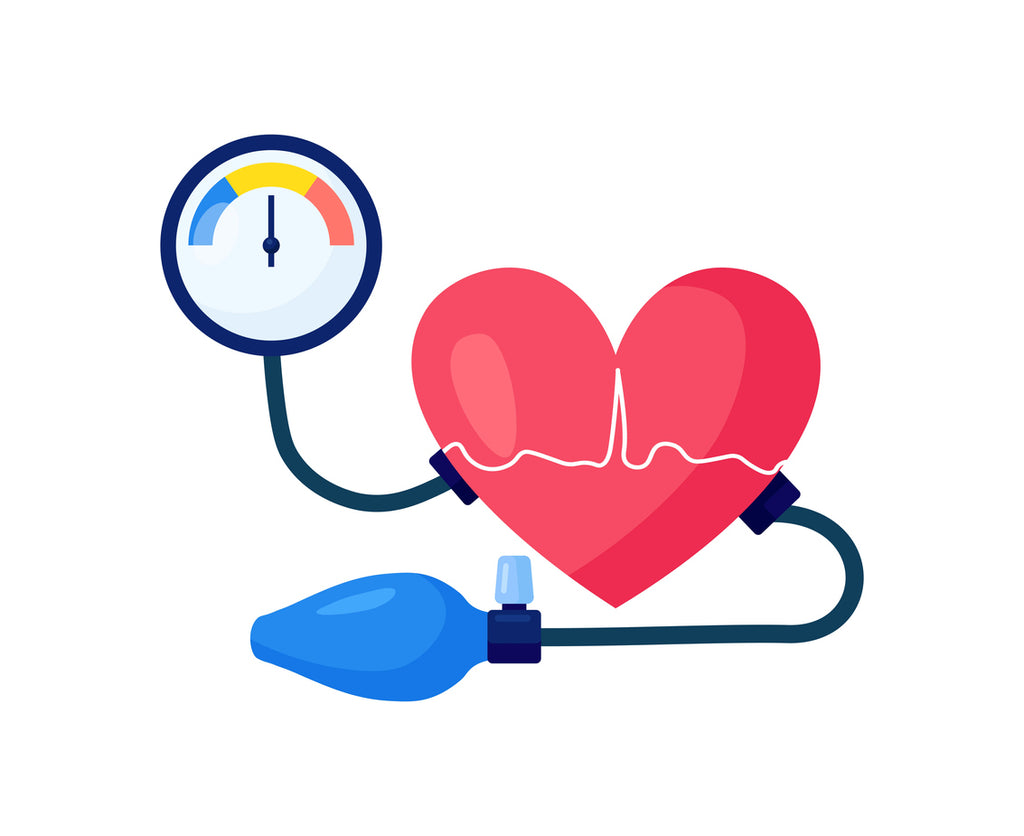High blood pressure (hypertension) and hemorrhoids are two common health conditions that many adults encounter. However, there's often confusion and speculation regarding the connection between the two. If you're wondering, "Can high blood pressure cause hemorrhoids?" this blog post is your go-to resource for an in-depth understanding.
The Common Misconception: High Blood Pressure and Hemorrhoids
At first glance, it may seem plausible that high blood pressure could contribute to the development of hemorrhoids, given that both involve vascular issues. However, it's essential to clear up a widespread misunderstanding: high blood pressure is not a direct cause of hemorrhoids. But that doesn't mean the two conditions are entirely unrelated.
The Real Connection: Straining and Temporary Blood Pressure Spikes
While hypertension doesn't directly cause hemorrhoids, the act of straining during bowel movements—a primary factor contributing to hemorrhoids—can lead to temporary spikes in blood pressure.
Here's how straining and blood pressure are connected:
- Straining: Exerting pressure during bowel movements can cause veins around the anus to become inflamed, leading to hemorrhoids.
- Blood Pressure Spikes: This same straining can temporarily elevate your blood pressure.
Risk Factors: Is There an Overlap?
Both high blood pressure and hemorrhoids share some common risk factors, such as:
- Obesity: Carrying excess weight can increase the risk of both conditions.
- Diet: High-sodium diets can exacerbate hypertension, while low-fiber diets can lead to straining during bowel movements, contributing to hemorrhoids.
- Lack of Exercise: A sedentary lifestyle is detrimental to both cardiovascular health and digestive well-being.
Managing Both Conditions: Tips and Tricks
Although one does not cause the other, managing high blood pressure can indirectly help you reduce the risk of developing hemorrhoids.
Here are some ways to manage blood pressure and hemorrhoid risk:
- Dietary Changes: Incorporate more fiber into your diet and limit sodium to tackle both conditions.
- Regular Exercise: Physical activity can help manage weight, improve cardiovascular health, and facilitate easier bowel movements.
- Medication: Consult your healthcare provider about medication options that may help control high blood pressure without exacerbating hemorrhoids.
Medical Advice: Always Consult a Healthcare Provider
While this blog provides a comprehensive look into the relationship between high blood pressure and hemorrhoids, it's crucial to consult a medical professional for a personalized diagnosis and treatment plan, particularly if you are experiencing symptoms of either condition.
Concluding Insights: Separating Fact from Fiction
High blood pressure does not directly cause hemorrhoids, despite some overlapping risk factors and symptoms. However, the straining during bowel movements, commonly associated with hemorrhoid development, can temporarily elevate blood pressure. Understanding this connection can empower you to manage both conditions better through lifestyle changes and medical advice.
Remember, for a personalized diagnosis and treatment plan tailored to your unique needs, consult a healthcare provider. With the right approach and guidance, you can effectively manage both high blood pressure and hemorrhoids.

